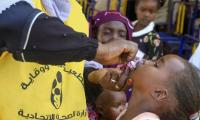LAHORE: The government will be hard pressed to meet the ambitious fiscal deficit target of 3.8 percent set for the next fiscal year, said the Institute for Policy Reforms (IPR).
The IPR, in its budget review, said the government again may cut development spending to achieve it.
It said total revenue is projected to grow to Rs4,915 billion, a growth of 13.4 percent. Following an increase of 19 percent this year, the Federal Board of Revenue’s tax revenue is targeted to grow by another 16.6 percent. Total expenditure is set at Rs4,418 billion.
The IPR said the current expenditure will grow 15.6 percent over the present year. Development will increase 14 percent.
It said the budget focuses on balancing receipts with expenditures. The report said major issues encumber economic growth. Agriculture production has declined. Exports are in a precipitous long-term fall. Power and energy remain short. The external sector is vulnerable, as the government borrows new loans to pay off old ones. The performance of industry is mixed.
The IPR said despite high claims, the budget does a little to address the real issues of the economy or to revive growth.
The institute welcomed the proposal for zero-rating of five major export products. This will ease a major issue faced by exporters, it said.
The IPR questions, however, government’s policy to increase the burden of indirect taxes. This year too much revenue increase comes through indirect taxes. These taxes are regressive, but more so, for an economy in moderate growth, they inhibit revival.
Referring to measures to revive agriculture and industry, IPR said their contribution to growth is temporary. The need was for long-term efforts to build competitiveness and increase productivity. While reduction in input cost will help, agriculture suffers from neglect of water resources and management.
Some public appeasing schemes like youth program and internally displaced persons settlement are not development programs.
“Deducting them the effective PSDP (public sector development programme) is Rs655 billion. This is 2 percent of GDP and 13 percent of total budget. The Rs655 billion funds 813 projects, with an average completion period of seven years,” the IPR said.
The IPR said roads get a disproportionate share of Rs188 billion. Growth in power sector allocation, though welcome, primarily funds the two LNG power projects. As LNG is an expensive fuel source, IPR would have preferred this amount to finance hydro projects. The PSDP does not at all address the two major constraints of transmission and distribution, it added.
Honda officials posing for a photgraph. —APP/FileKARACHI: Honda Atlas Cars Pakistan Ltd has achieved a major...
SOS children village's children showing bags donated by Emirates International Airlines. — Emirates...
Automobiles at the shipping terminal are shown from the view of a drone in San Diego, California, US, March 26, 2025....
A representational photo of clash between police and protesters. —AFP/FileLAHORE: Pakistan’s governance crisis has...
A woman holds a smartphone displaying the logo of social network X . — AFP/FileElon Musk said his xAI artificial...
A representational image of a person using his cellphone for a digital transaction. — Unsplash/FileKARACHI: Chief...







